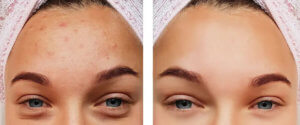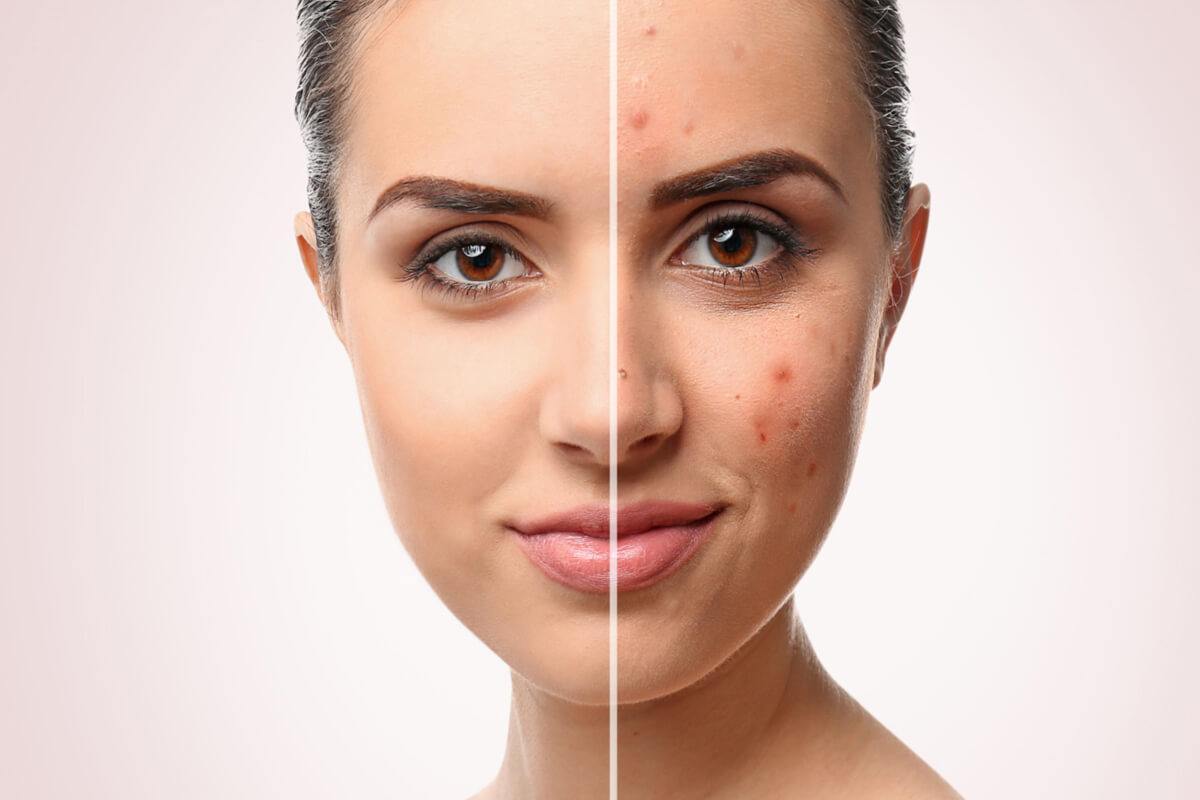Treatments for Acne
Acne is a well-known and common skin condition that also causes pimples. Acne usually appears on the face. Clogged pores are the cause of acne. Adolescents and young adults are most likely to develop acne, but many people may experience acne later in life. Acne treatments and preventing scarring are available nowadays.
What is acne?
Acne is a common skin condition that clogs the skin pores. Clogged pores result in acne, whiteheads, and other types of acne. Pimples are painful and pus-filled bumps on the skin.
The places where you might have acne
- Face
- Forehead
- Chest
- Shoulders
- Upper back
Different types of Acne
- Nodular acne: It is severe acne that causes pimples on the surface of the skin and tender, nodular lumps under the skin.
- Fungal acne: occur when yeast builds up in hair follicles. It causes itching and inflammation.
- Cystic acne: Cystic acne causes deep, nodules, and pus-filled pimples. These can cause scars.
- Hormonal acne: Hormonal acne affects adults who have an overproduction of pore-clogging sebum.
How is acne diagnosed?
An expert can diagnose acne with a skin test. During this examination, your provider will take a closer look at your skin to learn more about your condition.
Doctors don’t need to run diagnostic tests for acne, but they may offer tests to diagnose the underlying condition, especially if you have a sudden, severe breakout of acne, especially in adults.

How is acne treated?
There are several ways to treat acne. Each treatment will depend on your age, type of acne, and severity. The goal of acne treatment is to prevent new acne from forming and to heal existing scars. There are different treatments:
Oral acne medications
- Hormone therapy
- Antibiotics
- Isotretinoin
- Contraceptives
Topical acne medications:
the healthcare provider would recommend using topical acne medications to treat your skin. These drugs can be applied directly to the skin like lotions or moisturizers. These may be products containing any of the following ingredients:
Additional acne therapies:
If your acne doesn’t respond to topical or oral medications, or if you have acne scars, your healthcare provider may recommend several acne treatments to clear your skin.
- Chemical peels: This treatment uses special chemicals to remove the top layer of dead skin. After removing the top layer of skin, new skin grows smoother and can reduce acne scars.
- Lasers: Treat acne scars with laser and light therapy. The laser gives heat to the damaged parts under the skin. It relies on the body’s wound-healing response to create new, healthy collagen and promote new skin growth to replace it.
- Steroids: Steroids can treat severe acne by injecting them into large nodules to reduce inflammation.
Acne is the most common skin condition and it will affect your mental health and self-esteem. If you have stubborn acne, talk to your healthcare provider or dermatologist about treating your acne. When at-home skin care treatments don’t work, your acne may need a little extra help to get off your medication, we will be that extra help you need. Remember that acne is temporary and will go away with the right treatment for your skin.
Treatments for Acne FAQs
HOW LONG DOES ACNE TREATMENT TAKE?
On average, it can take a week or two for acne breakouts to go away on their own. With a good skincare routine and treatment, you can make your body’s healing time faster and clear your acne faster. If acne is severe, it may take weeks for it to go away, even with treatment.
HOW COMMON IS ACNE?
If you suffer from acne, be aware that you are not alone. Most people experience this common skin problem. It’s estimated that 80% of people between the ages of 11 and 30s have at least mild acne.
IS ACNE TREATMENT OKAY FOR PREGNANT PEOPLE?
Many acne treatments are not safe to take when you are pregnant. If you are pregnant or planning to become pregnant, it is important to discuss acne treatment with your doctor and inform your doctor if you become pregnant.
WHEN SHOULD I SEE A DOCTOR?
See your doctor as soon as you notice pimples and start treatment right away, before scars form. Talk to your provider if your acne doesn’t go away after using acne medications, or if it’s causing skin irritation such as itchiness or skin discoloration.


